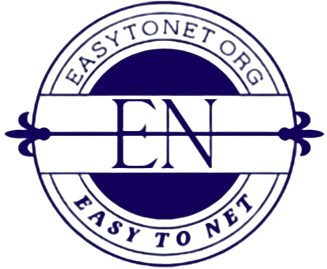Job applications once meant long queues, piles of paper, and handwritten forms. That system has changed rapidly. Today, every stage from applications and exams to document handling occurs online, which makes basic technological skills necessary.
Online forms, digital exams, and scanned documents have replaced traditional systems. Anyone who struggles with these tools risks missing deadlines or being disqualified for avoidable mistakes. This is why confidence with technology has become essential for anyone pursuing a government job.
Preparing for these roles now extends beyond textbooks. It requires navigating digital tools, platforms, and systems with ease. This article examines how technology changes the Sarkari job landscape and why digital literacy is no longer optional.
Simulation Training Apps
Many candidates are turning to simulation-based training apps. These platforms recreate real test environments, allowing users to practise under conditions similar to the actual exam. Regular practice builds speed, reduces anxiety, and improves concentration.
Interestingly, digital familiarity does not always come from academic resources. Interactive platforms such as live casino challenges, which involve quick decision-making in a timed setting, can also help users feel more comfortable with digital interfaces. These apps improve screen awareness, reaction time, and focus, which are valuable when facing computer-based exams.
The key lesson is that consistent interaction with digital platforms, even outside academic contexts, effectively prepares candidates for online tests.
Computer-Based Testing (CBT)
Computer-based tests are steadily replacing pen-and-paper exams. Major recruitment bodies now rely on online systems to ensure speed, fairness, and accuracy. As a result, candidates must be comfortable answering questions using a mouse and keyboard.
CBTs require test-takers to move between screens, manage time, and follow instructions quickly. Even a slow click or confusion with the layout can cause unnecessary delays. Mastering the subject is essential, but knowing how to navigate the test environment is equally critical.
Some candidates struggle not because of insufficient knowledge but because they panic when faced with digital interfaces. Learning the system is just as important for these individuals as studying the syllabus.
Digital Literacy and Preparation
Studying for Sarkari exams now requires a combination of traditional learning and digital resources. Many candidates use PDFs, video lectures, and mobile coaching apps. These tools provide quick access to mock tests, practice questions, and revision material.
To benefit from these resources, aspirants must know how to navigate websites, manage phone storage, and handle file downloads. Many apps also require login details and one-time passwords, which means candidates should be confident managing these independently.
Digital literacy in this setting extends beyond switching on a computer. It includes attending virtual classes, submitting online assignments, and tracking progress through apps. Those without these skills risk falling behind regardless of how well they understand the subject.
The Digital Recruitment Process
Applying for a government job now begins online. Most exams at both national and state levels require candidates to register through official portals such as SSC, UPSC, or state service commission sites. These portals demand everything from personal details to scanned certificates.
Candidates must know how to upload files, crop images to size, and select the correct format. Even minor errors may lead to rejection. Completing these steps independently is now part of the recruitment process.
Success also requires tracking notifications, deadlines, and admit card downloads. Without digital competence, even reaching the exam centre can become a challenge.
Barriers Faced by Digitally Unskilled Aspirants
Not all candidates have equal access to digital tools. Many from rural or low-income backgrounds lack reliable internet, personal computers, or smartphones. This disadvantage reduces their chances of success even when they are academically prepared.
Common issues include missing application deadlines, struggling with CBT navigation, or uploading documents incorrectly. Some candidates depend heavily on others for these steps, often leading to avoidable mistakes.
This situation is less about difficulty in learning and more about limited exposure. Many find it difficult to compete on an equal footing without affordable training and resources.
What Aspirants Can Do
Building digital confidence does not always require expensive tools or formal courses. Small steps, such as learning to open emails or browsing a government website, create a strong foundation. These basic skills prepare candidates to handle more advanced requirements later.
Local training centres and cyber cafés often offer low-cost or free digital literacy programs. Free apps are also available to teach typing, file management, and exam portal use. Watching online tutorials or taking mock tests regularly can further strengthen confidence.
Consistency is vital. Most candidates can learn to manage digital exams and applications with regular practice without external assistance.
Final Thoughts
Sarkari job exams are no longer only about knowledge of the syllabus. They now test how well a candidate can use technology. While the digital shift can feel overwhelming, steady practice makes the transition manageable. Anyone can build digital literacy with time and effort. Even the most hesitant candidate can develop the confidence to succeed in today’s competitive digital environment.

